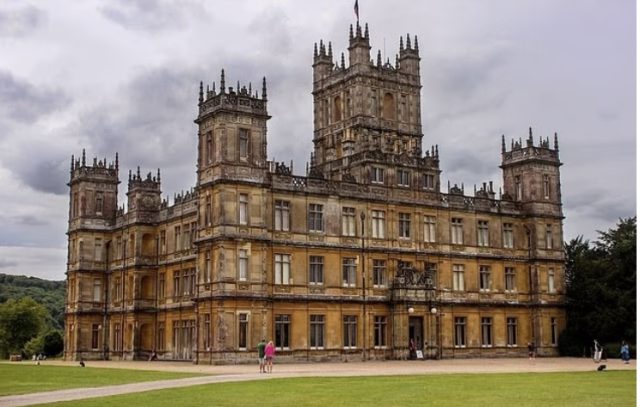This website uses cookies so that we can provide you with the best user experience possible. Cookie information is stored in your browser and performs functions such as recognising you when you return to our website and helping our team to understand which sections of the website you find most interesting and useful.
First crop harvested from Downton Abbey’s Highclere Castle
The Highclere Castle estate, known for its starring role in TV series Downton Abbey, has completed its first wine harvest.

Owners Lord and Lady Carnarvon planted Chardonnay and Pinot Noir in 2018 after they discovered that the ‘old wall garden’ on the Hampshire estate had the perfect chalk soil for a vineyard.
This week, they wrapped their first harvest with “thousands of grapes” hand-picked across the 2.5 acre (1ha) vineyard.
The estate has announced that while the Pinot Noir came out beautifully, the Chardonnay was more challenging due to heavy rain experienced this summer.
The Carnarvons intend to produce a sparkling rosé from the grapes with the objective of growing to 4,000 bottles per year and have registered the name ‘Chateau Highclere’ for the wine, which will initially be sold in the estate’s shop alongside Highclere’s own-label gin.
“I’m delighted to see the weight and quality of the Pinot Noir bunches,” Lord Carnarvon said in a statement.
“The Chardonnay grapes were slightly challenged by the severe rain but we’ve had a promising harvest. On tasting of the grapes they have a wonderful sweetness which in turn will hopefully produce a pleasing sparkling wine.”
In her blog, Lady Carnarvon has expressed her admiration for Jeremy Clarkson in moving from a career in entertainment to agriculture, segueing from Top Gear fame to becoming a farmer and beer-maker.
Clarkson recently launched what he refers to as “the V8 of lagers”. Hawkstone RedBrew 6.2 is a limited-edition lager inspired by the British autumn.
“I, for one, hope the story is not over yet and he continues to educate in the most entertaining way possible, what goes on behind getting food on our tables,” wrote Lady Carnarvon.
“If farmers go out of business or cannot undertake stewardship work, we will all be poorer for it as there is no government provision for suddenly increasing supplies from the EU,” she added.
“Furthermore if farms fail and our own internally sourced food supplies weaken, we will become ever more dependent on importing foodstuffs from elsewhere with all the attendant political and environmental costs.”
Related news
UK Christmas lights could buy 14 million mulled wines

